
"Love and Theft" is the thirty-first studio album by American singer-songwriter Bob Dylan, released on September 11, 2001, by Columbia Records. It featured backing by his touring band of the time, with keyboardist Augie Meyers added for the sessions. It peaked at No. 5 on the Billboard 200, and has been certified Gold by the RIAA. A limited edition release included two bonus tracks on a separate disc recorded in the early 1960s, and two years later, on September 16, 2003, this album was remixed into 5.1 surround sound and became one of 15 Dylan titles reissued and remastered for SACD playback.

Lucinda Gayl Williams is an American singer-songwriter and a solo guitarist. She recorded her first two albums, Ramblin' on My Mind (1979) and Happy Woman Blues (1980), in a traditional country and blues style that received critical praise but little public or radio attention. In 1988, she released her third album, Lucinda Williams, to widespread critical acclaim. Regarded as "an Americana classic", the album also features "Passionate Kisses", a song later recorded by Mary Chapin Carpenter for her 1992 album Come On Come On, which garnered Williams her first Grammy Award for Best Country Song in 1994. Known for working slowly, Williams released her fourth album, Sweet Old World, four years later in 1992. Sweet Old World was met with further critical acclaim and was voted the 11th best album of 1992 in The Village Voice's Pazz & Jop, an annual poll of prominent music critics. Robert Christgau, the poll's creator, ranked it 6th on his own year-end list, later writing that the album as well as Lucinda Williams were "gorgeous, flawless, brilliant".
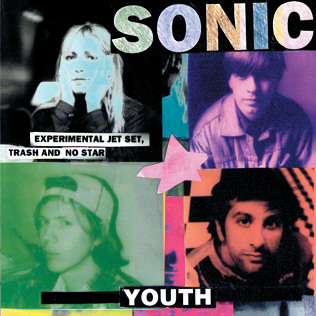
Experimental Jet Set, Trash and No Star is the eighth studio album by American experimental rock band Sonic Youth, released on May 10, 1994, by DGC Records. It was produced by Butch Vig and recorded at Sear Sound studio in New York City, the same studio where the band's 1987 album Sister was recorded. Unlike its predecessor Dirty, Experimental Jet Set features a more low-key approach and references the band's earlier work on the independent record label SST Records. The album contains quieter and more relaxed songs that deal with personal and political topics.

Car Wheels on a Gravel Road is the fifth studio album by American singer-songwriter Lucinda Williams, released on June 30, 1998, by Mercury Records. The album was recorded and co-produced by Williams in Nashville, Tennessee and Canoga Park, California, and features guest appearances by Steve Earle and Emmylou Harris.

Pretzel Logic is the third studio album by American rock band Steely Dan, released by ABC Records on February 20, 1974. It was recorded at the Village Recorder in West Los Angeles, California, with producer Gary Katz. The album was Steely Dan's last to be made and released while the group was still an active touring band, as well as the final album to feature the band's full quintet-lineup of Becker, Fagen, Denny Dias, Jim Hodder, and Jeff "Skunk" Baxter, though it also features significant contributions from many prominent Los Angeles-based studio musicians.

Robert Thomas Christgau is an American music journalist and essayist. Among the most well-known and influential music critics, he began his career in the late 1960s as one of the earliest professional rock critics and later became an early proponent of musical movements such as hip hop, riot grrrl, and the import of African popular music in the West. He was the chief music critic and senior editor for The Village Voice for 37 years, during which time he created and oversaw the annual Pazz & Jop critics poll. He has also covered popular music for Esquire, Creem, Newsday, Playboy, Rolling Stone, Billboard, NPR, Blender, and MSN Music; he was a visiting arts teacher at New York University. CNN senior writer Jamie Allen has called Christgau "the E. F. Hutton of the music world–when he talks, people listen."

Sticky Fingers is the ninth studio album by the English rock band the Rolling Stones. It was released on 23 April 1971 on the Rolling Stones' new label, Rolling Stones Records. The Rolling Stones had been contracted by Decca Records and London Records in the UK and the US since 1963. On this album, Mick Taylor made his second full-length appearance on a Rolling Stones album. It was the first studio album without Brian Jones, who died two years earlier. The original cover artwork, conceived by Andy Warhol and photographed and designed by members of his art collective, the Factory, showed a picture of a man in tight jeans, and had a working zip that opened to reveal underwear fabric. The cover was expensive to produce and damaged the vinyl record, so the size of the zipper adjustment was made by John Kosh at ABKCO records. Later re-issues featured just the outer photograph of the jeans.

More Adventurous is the third studio album by American indie rock band Rilo Kiley. Released on August 17, 2004 by Brute/Beaute Records, a self-made imprint distributed by Warner Records, it was the band's major label debut.
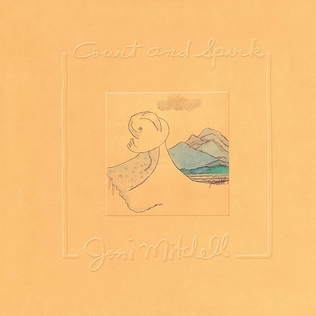
Court and Spark is the sixth studio album by Canadian singer-songwriter Joni Mitchell. Released in January 1974, it infuses the folk rock style of her previous albums with jazz elements.
Mint Records is a Vancouver, British Columbia, Canada-based independent record label founded in 1991, by friends and campus radio enthusiasts Randy Iwata and Bill Baker. Mint has put out over 150 releases, several of which have won Juno Awards.

Wild Gift is the second studio album by American rock band X, released on May 6, 1981, by Slash Records. It was very well received critically, and was voted the year's second best album in The Village Voice's Pazz & Jop poll. Wild Gift was later ranked at number 334 on Rolling Stone magazine's list of the 500 greatest albums of all time.

World Without Tears is the seventh studio album by American singer-songwriter Lucinda Williams, released on April 8, 2003, by Lost Highway Records. The album debuted at No. 18 on the Billboard 200, selling 54,000 copies in its first week. By 2008, it had sold 415,000 copies in the U.S.
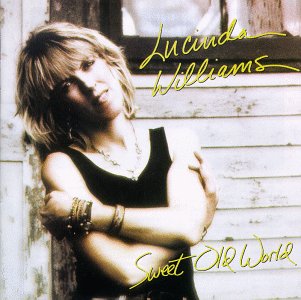
Sweet Old World is the fourth studio album by American singer-songwriter Lucinda Williams, released on August 25, 1992, by Chameleon Records.
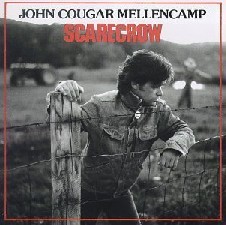
Scarecrow is the eighth studio album by John Cougar Mellencamp. Released on July 31, 1985, it peaked at number two on the US Billboard 200. The album contained three top-ten hits: "R.O.C.K. in the U.S.A.", which peaked at number two on the US Billboard Hot 100; "Lonely Ol' Night", which peaked at number six; and "Small Town", which also peaked at number six. "Lonely Ol' Night" also peaked at number one on the Mainstream Rock Tracks chart, his second chart-topping single on this chart.

Dream of Life is the fifth studio album by Patti Smith, released in June 1988 on Arista Records.

Trace is the debut studio album by American rock band Son Volt, released on September 19, 1995, through Warner Bros. Records. The band was formed the previous year by Jay Farrar after the breakup of the influential alt-country band Uncle Tupelo. Prior to its release, there was debate about whether Son Volt or Wilco, Uncle Tupelo's other offshoot, would produce a better album.
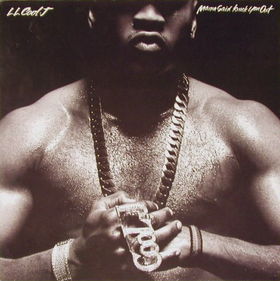
Mama Said Knock You Out is the fourth studio album by American rapper LL Cool J. It was produced mostly by Marley Marl and recorded at his "House of Hits" home studio in Chestnut Ridge and at Chung King House of Metal in New York City. After the disappointing reception of LL Cool's 1989 album Walking with a Panther, Mama Said Knock You Out was released by Def Jam Recordings on September 14, 1990 to commercial and critical success.
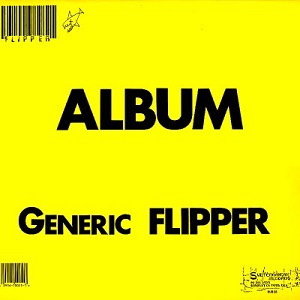
Album – Generic Flipper is the debut studio album by the noise rock band Flipper. It was released in June 1982 by Subterranean Records. It is also referred to as Album, Album: Generic, Generic Flipper and just Generic. It was issued on CD for the first time by American Recordings in 1992 and later deleted. In 2008, the rights reverted to Flipper, and the album was reissued on December 9, 2008, by Water Records. Former Nirvana bassist Krist Novoselic, who joined Flipper in 2006, contributed liner notes to the new reissue.

The Birth of Soul: The Complete Atlantic Rhythm and Blues Recordings is a 3-CD box set compilation by Ray Charles, released in 1991.
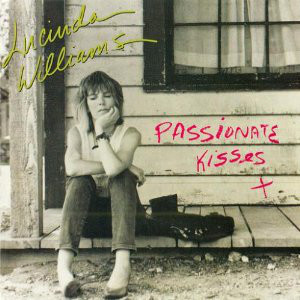
"Passionate Kisses" is a song written and performed by American singer-songwriter Lucinda Williams. It was released in 1989 as the fourth single from her third album, Lucinda Williams (1988).



















